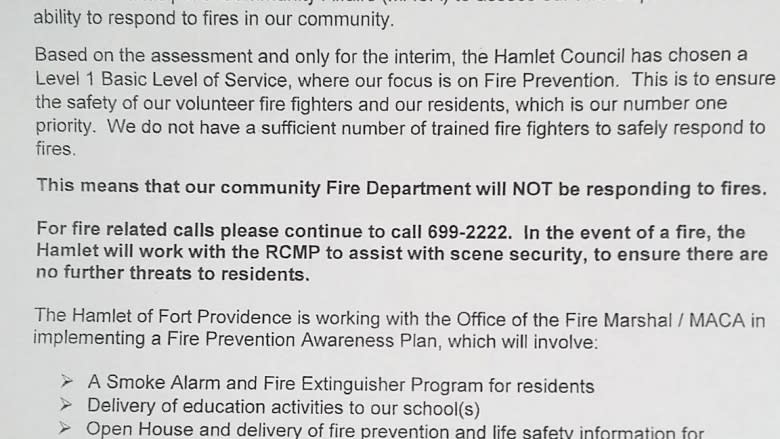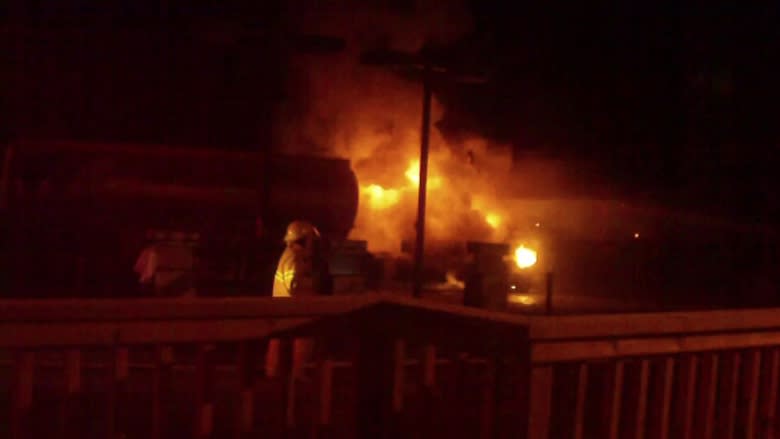Some communities in N.W.T. with limited emergency fire services as territory assesses situation
The hamlet council of Fort Providence, N.W.T., has given public notice that its fire department will not be responding to fires for the time being.
The notice said the community does not have enough trained firefighters to safely respond to fires, and it is working with the territorial government on returning to a "defensive" level of service.
Chucker Dewar, N.W.T. fire marshal, said the hamlet is working with the territory's Department of Municipal and Community Affairs to create an "action plan."
Fort Providence is not the only community in the N.W.T. with reduced fire protection services.
Two weeks ago the volunteer fire department in Norman Wells was placed on "operational pause." This week Dewar met with firefighters, the municipal government and community members in Norman Wells.
An update on the situation in Norman Wells is expected soon.
Territory-wide assessment underway
The Department of Municipal and Community Affairs is assessing fire protection services across the territory, but it's not making the findings public.
According to the department, it's in the middle of working with all 33 communities to assess fire department capacities and needs.
But a department spokesperson said Thursday that because each community is responsible for its own fire protection services, only individual communities can speak publicly about them.
He said the department would not confirm which communities have been assessed.
Dewar said services in about 15 communities have been assessed so far.
Needs vary across territory
Dewar said the department can make recommendations to each community on what level of service they should be providing and improvements that need to be made, but ultimately it is up to municipal governments to determine what services to provide.
He also noted communities are not obligated to implement the department's recommendations.
There is no legislation in the territory that requires municipal governments to establish fire departments.
For communities that do provide this service, their operations are governed by the N.W.T. Safety Act and the Worker's Safety and Compensation Commission's new code of practice for firefighters.
Last assessment on fire department in 2011
The current assessment of community fire departments was spurred in part by findings from an Auditor General of Canada's report released in October 2016.
It determined the territorial government was not adequately supporting community governments in providing key essential services — like fire protection — to their residents.
The report also found the Department of Municipal and Community Affairs had little knowledge about which communities even had fire departments or whether they were meeting requirements.
When CBC asked for a list of communities in the territory with active fire departments, the department said it could not provide one.
Kevin Brezinski, director of public safety with the department, said they don't maintain records of the status of a specific fire department, at a specific time. He said the situation in communities is often too fluid to allow that.
"Because 95 per cent of the fire service in the N.W.T. is volunteer-based the levels are changing constantly," Brezinski said
According to the auditor general's report, the last full assessment of fire departments was conducted in the 2010–2011 fiscal year.
Dewar said the department has been working on its community fire protection plan since 2014.
"Our whole premises is built on providing safety. Unfortunately the N.W.T. has fallen behind in this regard and it took us a long time to get to where we are and it's going to take us a little bit of time to dig out," Dewar said.
Brezinski said the department is planning on a status update in the spring in terms of the auditor general's report.




